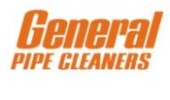
Federal Liberals commit $67M to harmonize national building codes
November 26, 2018 | By Jillian Morgan
The federal government is proposing to turn the taps on $67.5 million over the next half-decade to develop and harmonize building codes coast-to-coast.
In the fall economic statement, released November 21, Ottawa committed the funding to the National Research Council. A chunk of that money–$13.5 million–will be used to make access to the National Building Codes free and to develop the codes in a “more timely manner.”
“Having one set of rules that covers both the design of, and products that go into the construction of, buildings reduces regulatory burden and removes barriers to internal trade,” the fiscal update reads.
“Consistently applied, harmonized building codes also make it easier for designers, product manufacturers, distributors and contractors to conduct business more efficiently across the country.”
The report pointed to inconsistent water heater regulations between jurisdictions, which have led to “unnecessary” testing and inspections, increased compliance delays to meet regulatory requirements, and “exacerbated” supply chain issues.
Ralph Suppa, president and general manager of CIPH, said in a statement the association was “delighted” with the proposal, which it said will break down provincial and territorial barriers.
“The outcome of this was a true industry and government partnership recognizing that reducing regulatory barriers benefits both businesses and consumers by promoting investment, lowering the price of consumer goods and creating more opportunities for middle-class Canadians,” Suppa said.
On November 2, CIPH – along with the Association of Home Appliance Manufacturers Canada, the Heating, Refrigeration and Air Conditioning Institute of Canada, and Electro-Federation Canada–sent a letter to Saskatchewan Premier Scott Moe and New Brunswick Premier Brian Gallant urging for harmonization of model codes through the Canadian Free Trade Agreement work plan.
The plan includes timely adoption of National Model Codes by 2020.
“Our industry wants the First Ministers to support and act upon a critical barrier to interprovincial trade,” the letter reads. “Addressing the challenges of disjointed codes and regulations, restricted flow of professional trades and consistent construction sector inspections will ensure Canada is ready for the 21st century.”
Other plans outlined in the statement include 100 per cent write offs for machinery and equipment used for manufacturing, including some clean energy equipment. www.nrcan.gc.ca




